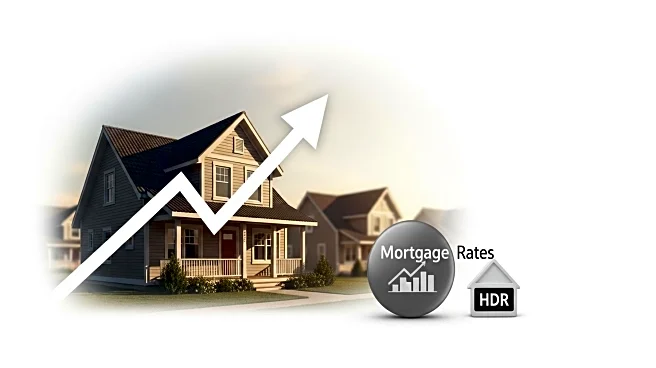What's Happening?
The average long-term U.S. mortgage rate has increased to 6.34% as of October 2, 2025, marking a rise of 0.04 percentage points from the previous week and 0.22 percentage points from a year earlier. This increase follows the Federal Reserve's recent interest rate cut, which was intended to address the U.S. housing affordability crisis. Despite the cut, mortgage rates have climbed, influenced by the looming government shutdown and its potential economic implications. Google searches for 'help with mortgage' have surged to levels not seen since the 2009 housing market crash, indicating growing concern among homeowners. The rise in mortgage rates and the economic uncertainty have led to increased mortgage delinquencies and foreclosures, particularly in states like Nevada, South Carolina, and Florida.
Why It's Important?
The rise in mortgage rates and the accompanying economic uncertainty have significant implications for the U.S. housing market and economy. Higher mortgage rates increase borrowing costs for homebuyers, potentially slowing down the housing market and affecting home affordability. The surge in searches for mortgage assistance suggests that many Americans are feeling financial pressure, reminiscent of the 2008 housing crisis. This situation could lead to increased foreclosures and financial instability for homeowners, particularly in regions already experiencing economic challenges. The broader economic impact includes potential slowdowns in consumer spending and economic growth, as housing is a critical component of the U.S. economy.
What's Next?
As the Federal Reserve awaits critical economic data to guide its next steps, the ongoing government shutdown could delay these releases, adding to the uncertainty. The Fed's future policy decisions will be closely watched, as they will influence mortgage rates and the broader economic outlook. Homeowners and potential buyers will need to navigate this uncertain environment, potentially adjusting their financial strategies. Policymakers may also face pressure to address housing affordability and economic stability, particularly if foreclosure rates continue to rise.
Beyond the Headlines
The current economic situation highlights the interconnectedness of government policy, economic indicators, and consumer behavior. The rise in mortgage rates, despite the Fed's interest rate cut, underscores the complexity of economic management and the challenges of predicting market reactions. The situation also raises questions about the resilience of the U.S. housing market and the potential for regional disparities in economic recovery. As the country navigates these challenges, the role of government intervention and policy adjustments will be critical in shaping the economic landscape.










